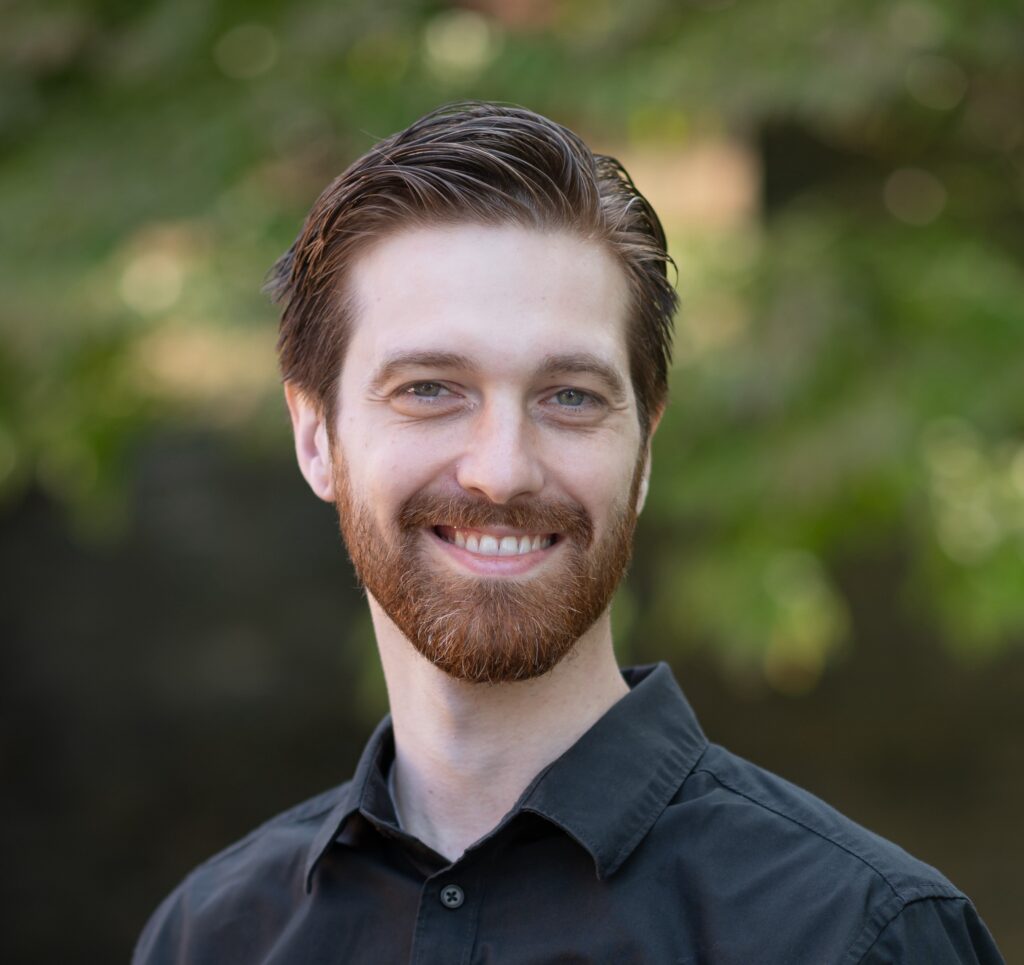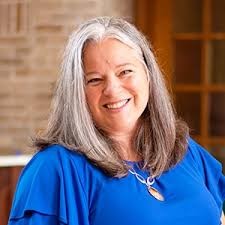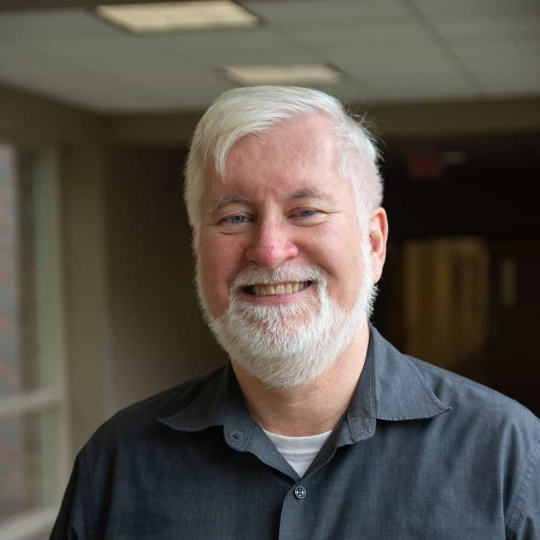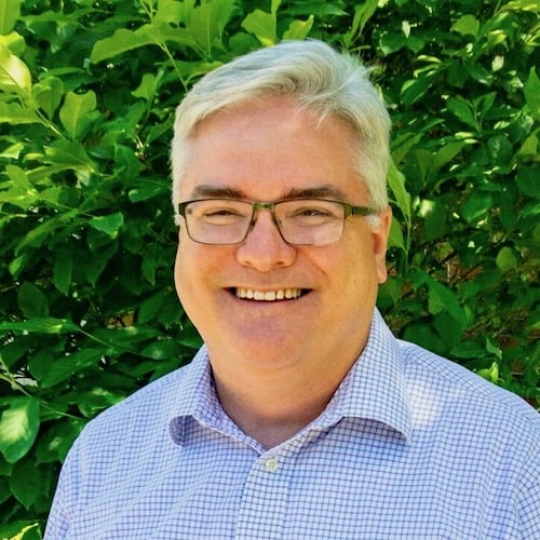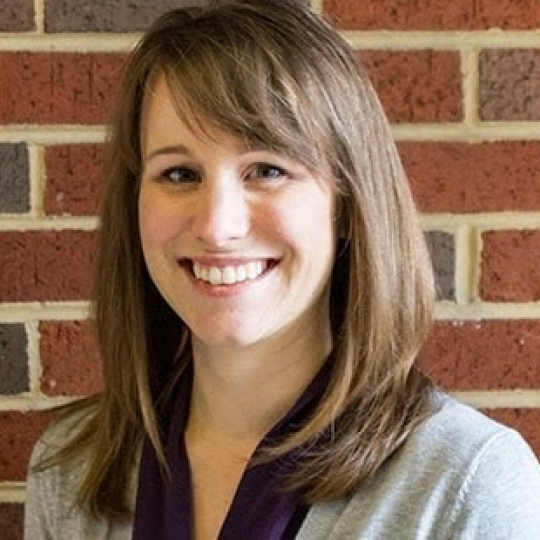Community Counseling (MA)
The Master of Arts in Community Counseling program at Cairn University offers a biblically grounded and academically rigorous graduate degree for individuals seeking advanced training and education in counseling, without necessarily aiming for licensure as a professional counselor. This 45-credit MA program can be completed in two years with full-time enrollment and fosters a comprehensive learning environment focused on students’ academic, spiritual, and character development. Through engaging lectures, hands-on counseling skills laboratories, and collaborative fellowship with fellow graduate students, this program equips learners to better serve the church and their communities through counseling.

Our Distinctives
The MA in Community Counseling is designed to provide training for biblically minded Christians who wish to provide counseling services in a variety of contexts within Christian and secular settings. The core courses and counseling laboratories provide a deep learning environment where counseling skills are taught along with character development and the interpersonal growth necessary for effective counseling.
Cairn University Ranks #2 in Glanzer’s Guide to Christian Colleges and Universities. At Cairn University, we work hard to ensure that everything we do inside and outside the classroom aligns with our commitment to Christian education, clearly articulated in our University mission statement.
Weekly Labs
Students participate in weekly labs which provide hands-on skill-building, peer feedback, and role-playing.
Biblically Rooted
At Cairn, we are rooted in the Scriptures; it is the foundation of everything we do whether it is in the classroom, on the field, or out in our local community.
Strong Academics
At Cairn, we prepare you for life in the real world with great academics and professors with real-life experience.
Affordable
Cairn is an affordable option among private Christian schools. Cairn Online degrees ranked among most affordable in PA in 2025.
Program Description
The MA in Community Counseling aims to teach students biblical principles involved in understanding human behavior, their problems, and the process of change. Over two years of full-time study, students develop counseling skills applicable across diverse contexts, grounded in biblical standards. Graduates will gain comprehensive knowledge of the counseling profession’s role in mental health care and a biblically informed approach to fostering meaningful change.
This program does NOT lead to licensure.
Curriculum Highlights
The MA in Community Counseling is a 45 credit program. It includes 39 credits from the core curriculum and 6 credits in Bible and Theology.
Core Curriculum Courses
- CSG 601 – Counseling Theory and Helping Relationships Credits: 3
- CSG 602 – Helping Relationships Lab Credits: 3
- CSG 611 – Psychopathology: Assessment, Diagnosis, and Treatment of Individuals Credits: 3
- CSG 612 – Individual Assessment and Counseling Lab Credits: 3
- CSG 621 – Social and Cultural Foundations of Counseling Credits: 3
- CSG 622 – Professional Orientation and Ethical Practice Credits: 3
- CSG 701 – Marriage and Family Counseling Credits: 3
- CSG 702 – Marriage and Family Counseling Lab Credits: 3
- CSG 711 – Group Counseling: Dynamics, Theories, and Practice Credits: 3
- CSG 712 – Small Groups Lab Credits: 3
- CSG 722 – Trauma and Grief Counseling Credits: 3
- CSG 821 – Human Growth and Development Credits: 3
- CSG 851 – Career Development Counseling Credits: 3
Program Objectives
Knowledge
- Knowledge of the history of psychology and counseling and its role in the development of current practice trends
- Knowledge of the counseling profession
- Knowledge of counseling theory
- Knowledge of the standards of ethical and professional practice
- Knowledge of the taxonomy of psychopathology, the development of maladaptive behavior, and current approaches to treatment
- Knowledge of marriage and family process and the skills necessary for couples and family counseling
- Knowledge of group processes, and procedures for effectively leading support and treatment groups
- Knowledge of mental health and counseling challenges as they appear across diverse cultural contexts
- Knowledge of career assessment and counseling
Skills
Students are expected to develop a degree of mastery in the use of foundational counseling skills as well as in the assessment of client problems. Students are equipped with a number of specific skills necessary to provide high-quality, ethically sound counseling and include:
- Biblically centered case conceptualization of psychopathology
- Navigating and resolving interpersonal conflict
- Individual assessment skills
- Self-assessment and reflective skills
- Academic research and writing skills
- Application of professional ethics standards
- Assessing group dynamics
- Group counseling procedures
- Assessment of couples and family processes
- Couples and family counseling methods
Maturity
Students are expected to demonstrate growth in the following areas as evidenced in routine faculty assessments:
- Application of biblical wisdom in the development and the capacity for self-evaluation and change
- Awareness and sensitivity to the presentation of psychopathology and counseling issues across diverse, pluralistic contexts and the ability to use discretion in the evaluation of culturally normative behavior
- Flexibility and adaptability
- Relational maturity with fellow students, faculty and staff
- Healthy boundaries and self-care
- Exercising biblical wisdom in prioritizing competing life responsibilities
Admission Requirements
All Cairn University students must have professed a faith in Jesus Christ as Savior as evidenced by providing a personal testimony that details this faith. By submitting an application, students acknowledge the University’s doctrinal position and standards of conduct as outlined in the Foundational Statements. Below are the admission requirements:
- Application: Submit the Application for Admission along with the $25 non-refundable fee. Apply today using code faithmatters, and we will waive the fee.
- Personal Testimony: Describe your conversion to Christ, spiritual growth, and church involvement. (250-500 words)
- Statement of Purpose: This program is a significant time commitment. In 500 words, explain how you have evaluated your readiness to manage competing responsibilities and priorities while pursuing this degree, as well as how obtaining this degree aligns with your long-term goals.
- Transcripts: Order official transcripts for all conferred degrees to be sent to Cairn University.
The Statement of Purpose and transcript requests can be submitted via the student portal once you submit the application.
Tuition and Aid
The tuition rates are posted on this page.
Cairn University also partners with many organizations and offers tuition discounts. Tuition discounts are also available for those working in Christian schools. Please contact us to find out if your organization has a partnership with Cairn University.
Additional information on scholarships, grants, and loans is available from this page.
Career Paths
A Master of Arts in Community Counseling equips graduates with skills in counseling, ethical practice, and Christ-centered therapeutic approaches, opening doors to roles that blend spiritual guidance with mental health support in ministry, church, and community settings.
Key Career Paths:
- Pastoral Counselor or Christian Counselor: Provide faith-integrated therapy for individuals, couples, or families dealing with emotional, relational, or spiritual challenges in church or private practice settings. This role combines counseling theories with biblical principles, often focusing on areas like marriage, addiction recovery, or trauma.
- Church or Ministry Counselor: Serve as a staff member in local churches, offering one-on-one or group counseling to congregants on issues like grief, personal development, or adolescent mental health, while supporting pastoral teams.
- Chaplain: Deliver spiritual and emotional support in non-church environments, such as hospitals, military bases, prisons, schools, or hospices. Responsibilities include crisis intervention, ethical guidance, and ceremonies, requiring adaptability to diverse faith backgrounds.
- Youth or Adolescent Counselor: Work in church youth programs, Christian camps, or schools to guide teens through identity, peer pressure, or faith-related struggles, using group work and developmental counseling techniques.
- Marriage and Family Therapist (Faith-Based): Specialize in relational counseling within ministry contexts, helping couples and families navigate conflicts, parenting, or divorce through a Christian lens, often in church-based family ministries.
- Missionary or International Ministry Worker: Provide counseling services abroad or in cross-cultural settings, supporting expatriates, locals, or mission teams with mental health needs amid spiritual outreach.
- Community Outreach or Advocacy Leader: Lead faith-based nonprofits or initiatives addressing community issues like substance abuse, homelessness, or family support, incorporating group counseling and assessment skills.
- Student Life or Camp Counselor: Support spiritual and emotional growth in Christian schools, universities, or summer camps, facilitating group activities and assessments for young adults or children.
Accreditation Information
Cairn University is regionally accredited by Middle States Commission on Higher Education (MSCHE).
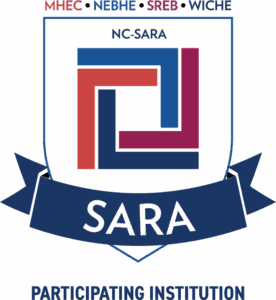
Cairn University participates in the State Authorization Reciprocity Agreements.
Additional Accreditation Information is available from this page.
Related Programs
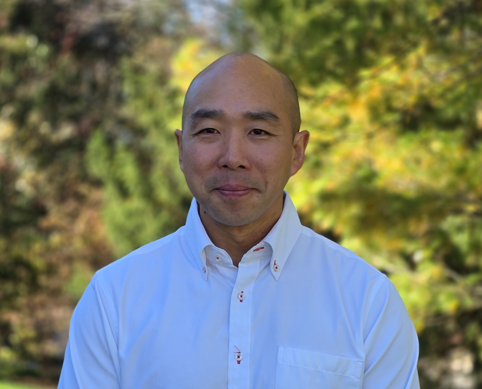
“My journey at Cairn has been truly joyful. Looking back, I did not anticipate the depth of transformation I would undergo. It wasn’t just that the program imparted a comprehensive foundation of knowledge; the expert faculty enriched my experience with their meaningful guidance and compassion. In my heart, I am deeply grateful, inspired, and empowered.”
– Phillip A.
FAQs
Can I become a licensed counselor if I graduate from your program?
No, the MA in Community Counseling program does not lead to licensure. If you are looking for a program that leads to licensure, you may want to consider the MS in Counseling program. You can, however, return to complete the third year of study and satisfy the required hours for licensure in states where the program has been approved.
What is the difference between the MA in Community Counseling and the MS in Counseling Degrees?
In summary, only the Master of Science in Counseling (MSC) program meets the educational requirements for licensure.
The Master of Arts in Community Counseling is a shorter program that does not fulfill licensure requirements. This degree can typically be completed in two years of full-time study, whereas the MSC is a 60-credit program usually completed in three years of full-time enrollment.
Both programs share a common core curriculum during the first two years, which includes the following foundational courses:
CSG 601: Counseling Theory and Helping Relationships
CSG 602: Helping Relationships Laboratory
CSG 611: Psychopathology, Assessment, Diagnosis, and Treatment in Counseling
CSG 612: Individual Assessment Laboratory
CSG 701: Marriage and Family Counseling
CSG 702: Marriage and Family Counseling Laboratory
CSG 711: Group Counseling: Dynamics, Theory, and Practice
CSG 712: Small Groups Laboratory
What can I do with the MA in Community Counseling degree?
Many agencies and institutions hire individuals for mental health roles that require a graduate degree in counseling, psychology, social work, or a related field—but do not require licensure.
These positions are often found in settings such as inpatient psychiatric facilities, outpatient clinics, and residential treatment programs. In such roles, unlicensed professionals typically work under the supervision of a licensed clinician, contributing to the implementation of treatment plans. Responsibilities may include facilitating psychoeducational groups, conducting individual coaching or counseling sessions, supervising program activities, and participating in interdisciplinary treatment team meetings.
Additionally, many individuals pursue the Master of Arts in Community Counseling to enhance their ministry work. Those serving in pastoral roles often seek advanced training in counseling to strengthen their ability to provide discipleship and spiritual guidance within their congregations. The MA in Counseling is an excellent option for those looking to integrate counseling skills into church-based ministry.
When can I start this program?
There are six entry points in the program: September, October, January, March, May, and July.
Provided you submit the enrollment materials, applications are typically processed within 2 weeks of submitting your application.
*What are the distinctives of Cairn’s program?
One of the key distinctives of our counseling programs is the use of theological principles to conceptualize clinical mental health issues. Students are equipped to conceptualize mental health issues through a Christian theological lens, drawing on biblical principles to inform their understanding of human behavior, suffering, and healing. At the same time, they receive robust training in the clinical language, frameworks, and evidence-based practices necessary to function effectively across a wide range of treatment settings.
A hallmark of the program is its four semesters of counseling laboratory training. These labs provide in-depth, hands-on experience in developing core counseling skills within a highly supportive and realistic environment. Through simulated counseling sessions that closely mirror real-life scenarios, students gain the confidence and competence needed to transition seamlessly into professional or ministerial roles upon graduation. This dual emphasis on theological insight and clinical excellence prepares graduates to serve with both compassion and credibility in diverse contexts.
Also, Cairn University Ranks #2 in Glanzer’s Guide to Christian Colleges and Universities. This achievement is a testament to our unwavering commitment to our mission, evident in every aspect of our institution from our curriculum to our governance.
Featured Department of Counseling Faculty
Next Steps
Information Sessions
Connect with an Advisor
Apply Today
Request More Information
Interested in our counseling programs with weekly labs? Complete this form to connect with an admissions advisor for personalized guidance on schedules, costs, and application steps. We’re here to help you take the next step!
Success Stories





